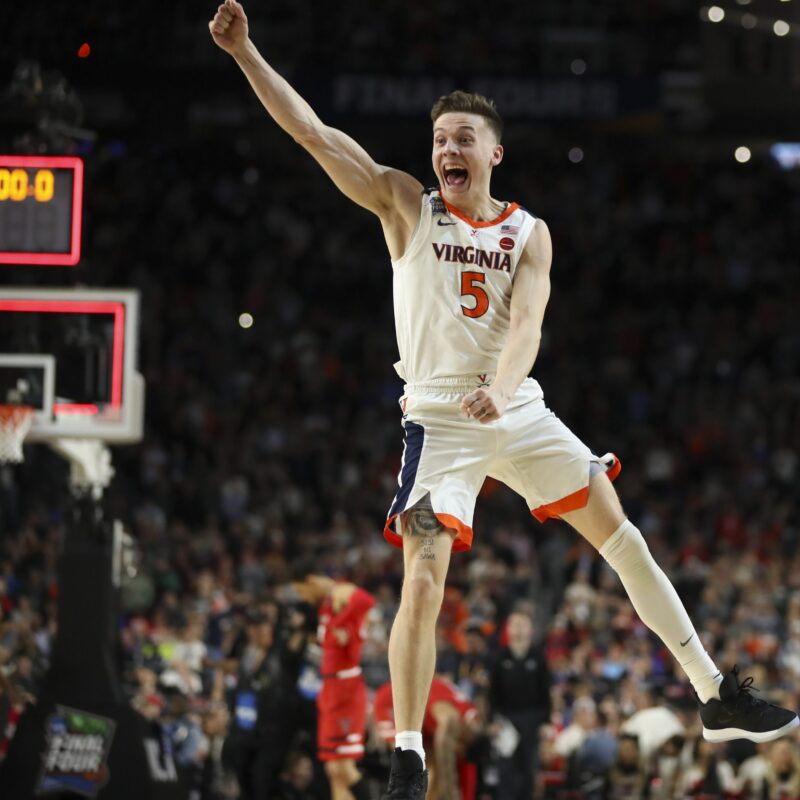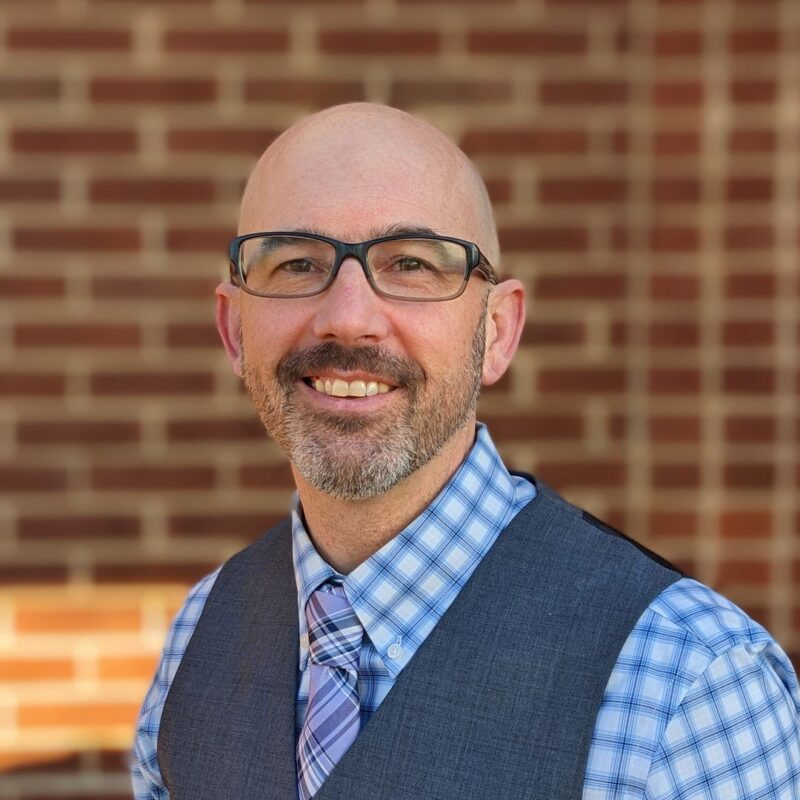 |
The close-cropped, brown-eyed bulk of a young man sat before the Senate Judiciary Committee on October 9, 2000, and offered his thanks to the committee’s chairman, U.S. Senator Orrin Hatch. "Thank you for inviting me for my first visit to Utah and my first appearance before a Congressional committee." Nineteen years old at the time, the hopeful computer science major who had dropped out of Northeastern University got straight to the point: "Napster has broadened my own horizons in many ways that I never expected."
But Shawn Fanning should’ve started not with what Napster had done for him but what it had done for his roommate. During his testimony before the SJC, Fanning explained that he developed Napster, a centralized space on the Internet that allowed free trading of music and media—a virtual five-finger discount!—after a roommate at Northeastern complained to him about the "unreliability" of websites that hosted music files. By the time Fanning gave his testimony to the SJC, he claimed that the Napster community "number[ed] over 32 million." Or, if you will, a possible pairing of 16 million virtual roommates with another 16 million, linked by the notes-under-a-desk transfer of copyrighted media, spawned from a devil’s advocate in his dorm.
In spring of 2000, another college dropout (University of Utah) named Justin Frankel would release Gnutella, a "peer-to-peer" file-sharing program used for the sole purpose of trading music. And during the same year, Jim Jokl, who was definitely not a college dropout but certainly a member, maybe unwittingly, of the burgeoning intercollegiate free-music scene and was director of the Communications and Systems Division for the University of Virginia’s office of Information Technology and Communication (ITC), weighed in on "The Networking Future at UVA" for Virginia.Edu, the school’s online ITC publication.
To deal with the growth in Internet usage at UVA, Jokl wrote of plans to increase the UVA network capacity by tenfold to 100 million bits per second, or Mbps, allowing for a faster transfer of data. Additionally, Jokl wrote that the spring semester of 2001 would see UVA’s "first widespread deployment of wireless LAN [local area network] technology."
One year later, Napster was done for: A temporary injunction from the Recording Industry Association of America (which, by its own estimation, spits out roughly 90 percent of all "legitimate" sound recordings in the U.S .—938.9 million CDs alone in the year that Fanning testified) in March 2001 that forced Napster to remove copyrighted music was followed by an agreement the following September to pay more than $26 million to copyright owners—meaning, principally, music labels.
When Shawn Fanning’s roommate gave his first gripe about not being able to dig up a Jimmy Buffett track or a live recording of "Nuthin’ But a ‘G’ Thang," he became the customer and Fanning, computer whiz kid, became the enabler—the type of roommate who probably digs through your plastic packing crates to scrounge food and save dough, and the type of roommate who is clever enough to find a cheap means to an end, respectively.
So what the hell happened to Fanning’s roommate, the neighbor of Napster, the faceless college student who wanted easier access to music files that were simply, you know, out there?
In August, the University of Virginia received seven "prelitigation" notices from the RIAA assigned to seven computers and their faceless users on UVA’s computer network. The letters carried no names; rather, they specified a series of numbers and decimals that identified computers tied into UVA’s information bloodstream. Moreover, the letters offered a suggested "settlement" price tag of $3,000—roughly a third of an in-state student’s tuition for the 2007-2008 school year, more than three times the estimated cost of books and a hell of a lot more than your average Wahoo’s annual booze stipend.
The incoming class of 2011 was largely under the age of 10 when Napster brought the dawn of music downloading, a Generation Y where the Y stands for "Yes," and music is obtained freely because some folks never knew it had a price tag on it. As a few IP address holders ponder settlements versus litigation costs, what do local musicians, managers, producers and UVA students stand to lose for the price of a song?
Verse one: Taking what’s there
Search for the phrase "download music" in Google, the Internet search engine founded by two Stanford University Ph.D. candidates while they were in their 20s, and you’ll receive a half-billion results. A few ( ArtistDirect.com, Download.com, Walmart.com) offer music downloads for sale; others (Limewire, Kazaa) offer music, but the price tag is expressed in paranoia rather than dollars: The RIAA is watching you.
But you’re not the programmers behind Napster, or Google. Hell, those kids aren’t even your roommates. So weigh your two choices, throw in your loan payments against your desire to drop book money on records, and opt for the discount route. This, according to the RIAA, is where you screwed up—like lunches, there’s no such thing as a free download. But go ahead and download the record; what does Madonna care anyways? The gal is loaded, right?
The download is over in seconds thanks to a lightning-quick connection but, somewhere in the midst of the download, a flashbulb goes off—snip! A member of the RIAA’s "active investigations" team has staked out the peer-to-peer download site that you’ve selected and, before you can hit your "PLAY" button to spin your new track, he has caught your IP address and a time-stamped record of your deal. Signed, sealed, delivered, you’re theirs.
With evidence in hand, RIAA contacts universities and asks administrators to pass prelitigation letters to the students whose IP addresses have been identified. At press time, three of the seven prelitigation letters received by UVA were passed along to students, two were still being investigated by the University, and the remaining two could not be identified. James Hilton, UVA’s vice president and chief information officer, says that UVA has previously received DMCA (Digital Millenium Copyright Act) notices that ask students to remove copyrighted materials from computers. If a student denies possession of illegal content after receiving a DMCA notice, Hilton says, then UVA abandons its intermediary role and connects the student with the RIAA directly "to take it outside and settle it."
"We do not monitor the content of network traffic," says Hilton. "We do look at network traffic to see if there are activities that threaten the network traffic, so if there are things that are using a lot of bandwidth"—a measurement of how much data may be transferred across UVA’s network—"we’ll investigate…to make sure that we understand what’s happening to our network flow."
There was a time when the discrepancy between a university’s bandwidth and that of smaller, individual Internet connections made university networks obvious targets for downloading stings&mda
sh;why tend to scratch marks when you can tourniquet the bigger wounds? As faster Internet connections become more common in households and among individuals, Hilton feels it is less likely that students account for the lion’s share of illegally downloaded tunes.
"In the early days, back in the original Napster days, universities were unusual because our students had access to very big pipes, and you can move a lot of content on very big pipes," says Hilton. "Today, the networks that universities use are really not any different to the networks they have access to anywhere else. Broadband has become much more ubiquitous."
Responding to Hilton’s comment that universities might not be responsible for the majority of illegal music downloads, RIAA spokeswoman Cara Duckworth mentions another pending lawsuit, this one against popular peer-to-peer file sharing site, Limewire. She adds that the RIAA’s preference is "to go after the business that encourages [illegal downloading]. But," she is quick to add in defense of RIAA’s tack, "we feel that individuals need to be held accountable for their own actions as well."
But personal accountability has a fluctuating price tag. Sources pit the initial settlement amount in prelitigation letters at roughly $3,000. If a student does not contact the RIAA, the organization subpoenas the university for the student’s information based upon the assigned IP address and offers another settlement at a discounted rate, estimated at $4,000. If this second settlement offer earns no response, then the RIAA files a lawsuit against the student in the amount of $5,000 or more.
Hilton says that UVA has never been subpoenaed for a student’s identity, nor has the University ever passed identifying information to the recording industry. "The recording industry is focusing so much attention on universities right now, when we’re the ISPs [Internet Service Providers] that have the education campaigns, and we make up a minority of the nation’s broadband networks," Hilton says ruefully.
Both Hilton and UVA Media Relations maintain that the University offers loads of education on proper Internet usage; ITC has been known to restrict or suspend IP addresses temporarily if an IP address is singled out for exceeding its allotted bandwidth (hands up if you’ve been busted for downloading whole seasons of "The Office" or letting people swipe your copy of The Big Lebowski). Unfortunately, your average university’s lessons in proper Internet usage are wedged between Mind-Numbing Orientation Exercise One and Mind-Numbing Orientation Exercise Two. Forgive us for not paying attention, for we know not what our Internet does.
This is the RIAA’s seventh wave of prelitigation letters offering discounted settlements, a total of 2,926 letters mailed since the campaign of download dissuasion started in February of 2007. In August, 58 schools received letters to deliver to students whose IP addresses were identified as hosting and trafficking copyrighted music files.
Since 2001, the RIAA lists a net loss of 34 percent in millions of units shipped in compact discs alone. In 2006, 85.6 percent of units moved by the U.S. sound recording industry were compact discs (614.9 million RIAA-associated records), while 6.7 percent were legal digital downloads (making them about as popular as cassette tapes at the turn of the century, which dropped steadily to 0.8 percent of sales in 2006 from 8.0 percent of sales in 1999). Individuals between the ages of 15 and 24 accounted for 22.6 percent of music sales in 2006, according to the RIAA. The estimated number of illegal music downloads in 2006, according to research firm NPD? More than 1.3 billion.
For the UVA students facing the hefty price tag that accompanies a settlement decision, what sort of legal precedents do they have on their side? According to Chris Cotropia, a law professor at the University of Richmond who specializes in intellectual property, not many. Cotropia believes that the RIAA would rather avoid seeing individual trials through in favor of pretrial settlements than lay legal precedent to clear up gray areas.
Why students at universities? "The owners would love to take away all the means of distribution, but that’s difficult," says Cotropia. "They’re in between a rock and a hard place. So they’re saying, ‘Let’s go after individuals.’"
So is the music industry all about the Benjamins, baby? Does cash rule everything around us, as the Wu-Tang Clan swore it did? And in a town like Charlottesville that packs more musicians than most states, how does the all the noise from illegal music downloading reverberate? Can we be land of the free (music) and home of the Dave (Matthews Band)? Money: It’s a gas.
Verse two: No conclusions
Morgan King’s Yer Bird Records label is based in Charlottesville and sports four artists—skewed-folk musicians named J. Tillman and Sounds Like Fall whose net sales, combined, don’t rank anywhere near the Billboard Top 100. King slapped the Yer Bird Records stamp on his first release in 2005.
"What a lot of people don’t understand is that the RIAA is a group that exists, today, to act primarily as the lobbying and prosecuting arm of the major record labels," says King. "The artists usually have little to do with it, and it has nothing at all to do with protecting the artists’ copyrights, but simply with keeping themselves in the employ of stockholders of record labels who have no interest in—or, probably, knowledge of—the art [or] the artist."
King admits to using file-sharing programs and speaking with people that have downloaded his releases; he says that the "pay-to-listen paradigm has passed," and that, "at least in the independent music community," listeners support artists through additional means so that they can encourage music that they enjoy listening to.
Bruce Flohr, an executive with developer Coran Capshaw’s Red Light Management—the local music management firm that also hosts a score of bands from homegrown label ATO Records—agrees with King, which is a bit of a surprise, given the leap in scope, a move from a mole hill to a mountain in terms of record sales and annual income. Thanks to the ease of the illegal download process, Flohr says that consumers of music are "much smarter now, more advanced than their taste."
"The negative is that you can no longer funnel garbage down one pipe and sell it to millions of people," says Flohr. "You have The Shins or Say Anything or Gomez"—the latter two being Red Light artists—"having their biggest successes ever, yet you have multiplatinum selling artists struggling to reach gold or platinum sales."
Flohr calls Red Light a multifaceted management company, with the type of personnel necessary to help musicians succeed in a download culture. "It used to be, you had a band, you got ’em on radio, on TV, on Rolling Stone, and you’re counting millions of dollars," he says. "Now, you have to do YouTube, MySpace, AOL, [perform at the] Satellite Ballroom, the [Charlottesville] Pavilion…"
Example? Flohr suggests Robert Randolph and the Family Band, a rootsy blues-rock group whose single, "Ain’t Nothing Wrong With That," got the kind of broad exposure that Red Light strives to meet with all of its artists, the type of marketing Flohr refers to when he refers to Red Light’s desire to market "the brand" of a group of musicians, a desire to make Randolph the Nike or Pepsi of the music world.
"Robert Randolph is a
perfect example—he has an amazing career, but doesn’t have a single record that’s gold," says Flohr of the musician he signed to Red Light in June of 2005. "But he’ll have a better year financially this year than last year." Randolph and the Family Band performed "Ain’t Nothing Wrong With That" on "The Late Show with David Letterman" and licensed the song for use in a commercial for phone company Cingular.
Not that Robert Randolph doesn’t stand to make a buck from RIAA litigation. A search engine entitled RIAA Radar allows music shoppers and pirates alike to search for albums and artists that may be affiliated with the RIAA through record labels. Until Randolph made a splash big enough for major record labels to take notice, he released a few albums on labels with names like Sci Fidelity Records and Rope a Dope; on RIAA Radar, these records are depicted next to green buttons bearing a "thumb’s up" reassurance and the word "SAFE!"
However, in signing a deal with the Warner Bros.’ label for records from 2002’s Live at the Wetlands (originally released on Sci Fidelity) and onward, Randolph gave RIAA-savvy downloaders a warning through RIAA Radar: each of his Warner Bros.-released albums is pictured on the site next to a red button that reads "WARNING!"
A good deal of Flohr’s acts will benefit from both Red Light’s across-the-board marketing style and the RIAA litigation: A few (Gomez, Vusi Mahlasela) are also signed to ATO Records, a member of the RIAA.
"I think that the RIAA represents themselves and other ‘money’ people in the food chain of the music ecosystem more than the actual artists," says Matthew Clark, shaggy-haired drummer for the band Ostinato, who alternately tour Europe and set up shop in Charlottesville’s darkest dens, including the Outback Lodge. Clark says that he wouldn’t be upset to learn of individuals downloading his music without paying him for it. "But if someone could afford it and had an opportunity to buy our releases, I’d certainly appreciate that," adds Clark.
Much like the current underclassmen at UVA, a good many local musicians came of age during a time when the possibility of free music was everpresent, if you had a modem, a computer and a hint as to where to find the right programs. Local producer Lance Brenner oversees groups including the Love Tentacle Drip Society and Kate Starr, and performs with his own groups (The Falsies, the Naked Puritans, Thrum) and, when it comes to across-the-board marketing…
"Touring, you’re lucky if you break even, unless you’re Dave Matthews Band or the Rolling Stones," says Brenner, who charges a flat fee as a producer to avoid the flux that accompanies working on a commission rate. "I don’t download music unless I know that it’s the artist giving it up," he adds, in a moment of empathy from an older musician to the performers he produces now. "It hurts me for my own bands."
Unfortunately, Brenner seems at odds with his own clients. Charles Carrier is a multi-instrumentalist in the Love Tentacle Drip Society—lanky with a mass of blond curls and a cherubic face. Not yet 20, Carrier waxes philosophical on the legality of downloading copyrighted tunes. "It’s technically wrong, but it’s not morally wrong. …People realize it’s illegal, but a lot of people, including myself, don’t really care and don’t think that it is morally bad." Despite his producer’s qualms, Carrier says that he has no problems with people downloading his band’s music.
And perhaps it can be both illegal and morally sound; perhaps it’s vice versa. One thing is clear: While the RIAA would like to avoid gray areas, listeners have nothing but gray areas.
Still, other young musicians like Seth Green, bassist for country rock outfit Sons of Bill, see the matter as a bit more black and white. Green received a letter from UVA in 2003 that informed him that he was being tracked by the RIAA through his IP address.
"When Napster first came out, I downloaded a hell of a lot illegally," says Green. After the letter? "I stopped then. Now I burn CDs from friends for my free music fix and download off iTunes"—Apple’s legal paid download site—"occasionally. But I still prefer to buy the hard copy if I’m going to pay for it."
While Green concedes that the RIAA’s prelitigation letters work to some degree (he is upfront about his desire to get paid for his music and, in regards to downloading, says that the RIAA’s notice "certainly scared [him] out of it"), he likens the threat of legal action to "putting a Band-Aid on a shotgun wound."
"If the RIAA had taken all the money they spent on litigation and instead used it towards developing cool new ways to market and sell music—not to mention a few pennies on artist development—they’d be a lot better off now," says Green.
"I’m not saying the CD industry wouldn’t still be sinking, but at least they’d have some other ships to jump on instead of wasting their time bailing out that swamped old barge."
Chorus: Repeat, then verses one and two again
On September 20, Gregg Gillis, a blue-eyed, pale-skinned music aficionado and "mash-up" artist, will perform as Girl Talk at the Satellite Ballroom on the Corner. Gillis, who earned a Rave Award from Wired magazine for his album Night Ripper (a blend of short samples of countless popular artists and songs, many copyrighted), is 26 years old, the age of a recent college graduate, not too far removed from those programming pioneers that brought downloading to the world stage at Track 1, Side 1 of the new millennium. According to Gillis, downloading fuels his whole career.
"A lot of kids come out for the shows, and don’t even realize I have an actual CD out," says Gillis. "A lot of people just think it’s this Internet phenomenon."
"And that’s cool because, you know, they come out to the shows," says Gillis. "All of the money that’s actually putting food in my mouth is through shows, and all of that is coming from people who hear about it on the Internet. So it’s great."
Gillis is the sound of the Download Culture, a man who gleefully ransacks the bargain warehouses of popular music for snippets of tunes to blend into something larger. He is the sound of more than a million downloads happening in the course of a single day, the sound of 1.3 billion downloads last year, occurring in a three-minute blast of infectious pop music. And he’s a mascot for his age, the artist equivalent of the college radio DJ who burns his copyrighted music onto a CD and brings it to his 1am show, or the girl that loads all of her personal music collection onto the iPod of a friend, just ’cause.
And so we’re back to the kids, the listeners, the UVA students, the fans! Every music fanatic mired in the gray areas of "Should it be?" and "But it always has been." Caught between melody and static, a mish-mash, a mash-up. Static.
Karen Richardson, a fourth year at UVA, says she doesn’t download music unless it is clearly legal to do so; she uses Ruckus, a program that has deals with universities across the country to allow for unlimited quantity, restricted use downloading
for a flat rate each month. She used to use Limewire, but stopped; "I don’t want to get fined and start my life in debt," she says.
Regarding the seven unnamed UVA students on the receiving end of prelitigation letters, Richardson says she thinks it is fair that they are punished. "I’m assuming they constantly downloaded; that’s taking it too far."
Fourth-year student Mike Donnal recalls buying his first record in fifth grade for $10, then watching the price of albums climb slowly towards $20 at the same time that downloading copyrighted music emerged as an alternative. "The record industry failed to adapt to that change," Donnal says. "I remember talking about this stuff with my friends in, like, eighth grade."
Donnal describes the process of downloading music (which he was, apparently, aware of in eighth grade) as "so anonymous and impersonal, there’s no way [the RIAA] is going to stop it by cracking down on seven students." Donnal uses Limewire, as do his friends.
When asked if he is worried about getting busted like his colleagues, Donnal replies, "No."
"I saw a piece in The New York Times, maybe two years ago, with different people writing about this stuff…One person said [the music industry] is going to shift to where songs are commercials for concerts. I go to plenty of concerts."
The question of "How far is too far?" is a common chorus among downloaders. Undergraduate Thomas Wu says that he illegally downloads foreign music, but will download "other stuff" by using iTunes; by his own admission, he is "walking a fine line." Wu feels that the students weren’t entirely in the wrong as they weren’t selling the copyrighted tunes, but he "can understand why the RIAA would think they were costing them sales." He knows that he takes a risk every time he downloads a song, and feels that the Charlottesville Seven should’ve been aware of the risk.
But maybe they were. If the RIAA pushes, how do fans push back? Is there safety in numbers, that diffusion of responsibility that students hear about in Psych 101 in the story of a man that commits a violent crime in front of a crowd but gets away? If a thousand students robbed a record store in front of a handful of RIAA employees, would the employees attempt to stop them?
Danny Shea is in his 30s, a tall, dark-haired man whose band t-shirts and black-framed glasses make him a typecaster’s dream for "Record Store Clerk." Shea books concerts at the Satellite Ballroom, which shares a building with Plan 9 Records on the Corner; he booked the club’s Girl Talk concert for September.
Shea is as much a realist as anyone that came of age in the Downloadable Now, but with a bit more foresight. Much like the live music experience, the ability for artists to freely distribute music lets them "control the context in which they present things," says Shea. "I think the industry killed itself by cannibalizing itself."
"Look at how much money Madonna has," says Shea. "More than any human being should have. Is she that good of a musician? She’s just a honky from Detroit."
How much money should Madonna have? Why is it that the bassist from Local Band Number One is a little more protective of his financial future than the percussion player from Local Band Number Two? Is downloading copyrighted music morally wrong? Legally wrong? Neither?
Better yet, what happens when the music runs out? The types of used CDs that populate used record stores are the same albums that can be found on cassette tapes and vinyl in the same stores. When digital downloaders are finished ransacking history for tunes, they’ll have to wait and experience the market in real-time, at which point the RIAA could direct funds towards new marketing tactics, or, well, not. We’ll see. Two things are certain, however: Seven UVA students are no longer getting away with it, and plenty more are.
Piracy 101: A history

1
|

2
|

3
|

4
|

5
|

6
|
Following the RIAA‘s first lawsuit against file-sharing site Napster in December of 1999, it was only a matter of time before artists chose sides. In April of 2000, Grammy-winning heavy metal powerhouse Metallica (1) filed a lawsuit against Napster as well as a handful of colleges (Yale, Indiana University, University of Southern California) that ended with users being locked out of Napster’s website. The second musician to rock Napster’s world was hip-hop icon Dr. Dre (2), who signed on with Howard King (also representing Metallica in their suit against Napster) roughly one week after Metallica’s suit and asked that all of his music be stricken from Napster’s network. During the same year, tracks from inventive U.K. rock band Radiohead‘s (3) latest album, Kid A, appeared on Napster and other file-sharing networks. While no direct correlation seems evident, the band—which had failed to crack the top 20 in record or single sales in the U.S. market—hit the No. 1 spot in album sales the same week it was released. By 2003, album leaks seemed to be the new kingmaker among recording artists, much to the chagrin of the RIAA: Though Fiona Apple‘s (4) album Extraordinary Machine was shelved by Epic Records for lacking an obvious single that would justify its release, Apple’s record began trickling onto the Internet in 2004 and onto the airwaves in 2005 thanks to a radio station in Seattle. File-sharing watchdogs BigChampagne estimated at the time that roughly 38,000 computers in the U.S. were sharing tracks from the record (which was ultimately released in October of 2005). Recently, artists like DJ Danger Mouse and Girl Talk (5) have popularized a style of music known as "mash-ups," in which snippets and strands of copyrighted songs are meshed together to create new musical pieces. Girl Talk, whose song "Smash Your Head" features samples by Elton John, Nirvana, Fall Out Boy, Public Enemy and the Notorious B.I.G., plays the Satellite Ballroom on September 20. Now, according to Red Light Management executive Bruce Flohr, acts like Robert Randolph and the Family Band (6, seen here at a Pavilion gig) have to market themselves more as a brand than a band, focusing on licensing songs and creating brilliant live shows. It can’t hurt the band financially, however, that they release albums on Charlottesville’s ATO Records, a member of the RIAA.
Will Goldsmith, Erika Howsare, Doug Nordfors, John Ruscher and Scott Weaver contributed reporting to this article.
No part of this article may be downloaded without express written permission of the publisher! Ha ha ha!





